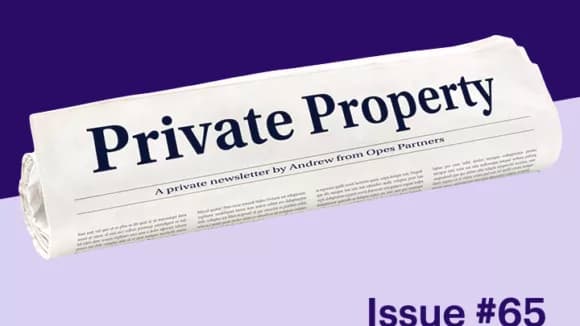
Property Investment
Private property issue #65 - Trouble with Townhouses
Let’s go through the problems with townhouses so you can decide whether investing in a townhouse is right for you.
Property Types
3 min read

Author: Andrew Nicol
Managing Director, 20+ Years' Experience Investing In Property, Author & Host
Imagine you’re 15 years in the future. The year is 2039.
As you walk around the streets … what sort of houses do you see?
What sort of properties will New Zealand need in 2039?
Us property investors need to think about the future.
If we can figure out what houses people need … we can build them.
Then, as demand for those properties increases … prices will rise.
That’s why I got Dr. Stuart Donovan on the Property Academy Podcast.
He’s an urban economist.
No, that doesn’t mean he wears ripped jeans and has his hat on backwards.
He looks at how our cities are changing … and how they will change in the future.
Here are the two trends he’s noticed.
The average number of people living in each house is shrinking.
Back in 1976, 3.2 people lived in each Kiwi household (on average). That’s shrunk to 2.7 people per household today.
That’s for a few reasons:
1) People are having fewer children. The number of births per woman in 1979 was 2.3. Today, it is just 1.6.
2) Couples are also settling down and having children later. That means they have more time by themselves before starting a family.
3) Then there’s the rise of divorce. As couples split, the same number of people split into two households. They need two houses rather than just one.
That means we need more houses. But those houses don’t need as many bedrooms. There are fewer people living in them.
But that’s not the only trend.
Back in 2000, the average household income was $50,431.
Today it is $132,538.
Incomes have gone up 163%. But the cost of living (inflation) has only risen 84%.
Incomes rose almost twice as fast as the cost of living.
I know it doesn’t always feel like it … but we are getting richer.
As that happens, we want better quality housing.
We want nicer homes.
And you can probably see this in your own life.
Think about the house you grew up in. How many bedrooms and bathrooms did it have?
If you’re like me, you grew up in a 3 or 4-bedroom house with one bathroom.
How are new houses different today?
Many newer houses have at least 2 bathrooms.
The master bedroom might have an ensuite and a walk-in wardrobe, too.
So sure, people don’t need as many bedrooms … but they want their houses to be higher quality.
When Dr Donovan was on the show, he summed up these trends in 2 words. “Compact quality”.
Homes that have more features in less space.
People want:
That doesn’t mean every house needs to have these features to be a good investment.
But, this is where the trends are going more generally.
People will want and are already opting for smaller homes that suit their smaller household sizes.
That means more apartments, more townhouses, and more multi-unit style of living.
It’s not that no one will live in a house in the future. But the mix of housing will change.
This will continue as New Zealand becomes more diverse.
Most new migrants to New Zealand aren’t coming from Australia.
India, the Philippines, and China are the most popular countries that new Kiwis come from.
These new migrants are used to large, dense cities. They don’t have the same attachment to the quarter-acre section that some of us still do.
Currently, 3-bedroom homes dominate the market. That will likely continue in rural New Zealand.
But the future for our cities is different. More of us will live in more compact, higher-quality, 2 and 3-bedroom units, townhouses and apartments.
Managing Director, 20+ Years' Experience Investing In Property, Author & Host
Andrew Nicol, Managing Director at Opes Partners, is a seasoned financial adviser and property investment expert with 20+ years of experience. With 40 investment properties, he hosts the Property Academy Podcast, co-authored 'Wealth Plan' with Ed Mcknight, and has helped 1,894 Kiwis achieve financial security through property investment.
This article is for your general information. It’s not financial advice. See here for details about our Financial Advice Provider Disclosure. So Opes isn’t telling you what to do with your own money.
We’ve made every effort to make sure the information is accurate. But we occasionally get the odd fact wrong. Make sure you do your own research or talk to a financial adviser before making any investment decisions.
You might like to use us or another financial adviser